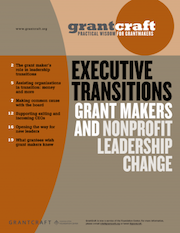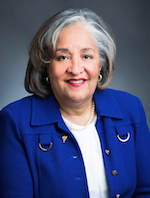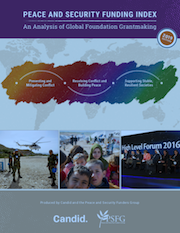Site Search
- resource provided by the Forum Network Knowledgebase.
Search Tip: Search with " " to find exact matches.
CNJG's 2018 Annual Meeting & Holiday Luncheon pre-meeting workshop with Michelle Greanias from PEAK Grantmaking focused on how foundation CEO’s, program officers, staff, and trustees could engage internally to put values-based grantmaking into practice.
Walk the Talk Video
Governing by-laws for the Council of New Jersey Grantmakers.

Guide your philanthropy clients through the complexities of their work in diversity, equity and inclusion (DEI) with our DEI Toolkit for Consultants to Grantmakers. Help consultants and grantmakers alike look through issues with a DEI lens. The toolkit consists of key resources recommended by leading experts whose work focuses on DEI and its significant impact in the philanthropic sector.
The Health and Environmental Funders Network (HEFN) and Sustainable Agriculture and Food Systems Funders (SAFSF) invite you to join an informal conversation to learn from funder peers who are practicing participatory grantmaking (PG). We’ll begin with a brief overview of PG, and how this practice can be used to center equity and justice as we shift away from extractive grantmaking practices. We’ll then hear from a few HEFN and SAFSF members who are implementing different models of PG in their grantmaking.
If you’re new to the concept of participatory grantmaking, this webinar is a great opportunity to see examples of it in action. If you’re familiar with participatory grantmaking (or working to implement these practices in your own world), this is a chance to dive deeper into others’ practices for learnings and insight. Time will be reserved in the agenda for discussions in smaller groups and, as you might expect, the call will be participatory!
Speakers:
Amanda Tello, St. Louis Environmental Justice Fund
Shavaun Evans, Food and Farm Communications Fund
Mark Muller, Regenerative Agriculture Foundation
Resources
Zoom Recording
Webinar slides
Deciding Together Shifting Power and Resources Through Participatory Grantmaking
Amanda Tello’s communal agreements
PG Learning Community Summary
CNJG, in partnership with the Center for Nonprofits, is thrilled to invite you to a virtual launch event to celebrate the debut of the New Jersey Philanthropy Hub—a groundbreaking, one-stop platform for understanding and strengthening philanthropy in our state—built by Impala.
On October 23, there is a corresponding launch event for nonprofits in New Jersey. If you are a nonprofit, please register for the October 23 event here.
Cost: This launch event is free for Grantmakers who are based in, operate in, and fundraise in New Jersey.
Read more about Impala and the partnership with CNJG and the Center for Nonprofits.
Please show your support of CNJG by displaying the following "Proud Member" graphic on your website, in social media posts, on publications, and in other communication efforts as appropriate.
This case study of the Council of Michigan Foundations' Peer Action Learning Network (PALN) is one of six examined in a report from New York University's Wagner Research Center for Leadership in Action, commissioned by Grantmakers for Effective Organizations. The PALN case study, along with the other five, explores the power of learning communities to build connections and knowledge to increase organizations’ community impact. It explains ways grantmakers can strategically support these efforts as well as key elements for designing learning communities, executing for success and extending the learning.
How Can Grantmakers Focus on Nonprofit Talent to Grow Impact? explores the importance of supporting nonprofit talent development, the unique talent needs of nonprofits seeking to grow their impact and how grantmakers can help.
CNJG is pleased to offer this series of webinars to our members, hosted by our partners at the Center for Disaster Philanthropy.
With COVID-19 there seem to be more questions than answers, particularly for funders who want to respond effectively and efficiently. This series of seven webinars will bring expert panelists together to address some of the most pressing issues, including getting money out the door quickly, supporting vulnerable populations and managing other disasters in the midst of the pandemic.
Join the Center for Disaster Philanthropy for one or multiple webinars to gain a better perspective on the role of philanthropy in COVID-19 response and recovery.
Cost: Free for CNJG members and Nonmember Grantmakers
CNJG thanks the Center for Disaster Philanthropy for hosting this series.
Upcoming Webinars in this Series:
June 23: Managing a Global Response
July 14: How Funders Can Support Bereavement and Grief
Past Webinars in this Series:
April 14: Making Effective Rapid Response Grants
April 28: Managing Multiple Disasters Amid the Pandemic
May 12: Place-based Grantmakers and Investing in Local Communities
May 26: How Philanthropy Can Stand Up for Vulnerable Populations
 New Jersey’s largest philanthropic association has named longtime social sector leader Maria Vizcarrondo as its president.
New Jersey’s largest philanthropic association has named longtime social sector leader Maria Vizcarrondo as its president.
“Maria has been a trailblazer throughout her career,” said Council of New Jersey Grantmakers Board Chair William V. Engel. “We turn to her to help the state’s diverse and dedicated philanthropies to be even more effective in their quest to make this a better place.”
The Council of New Jersey Grantmakers is a nonprofit organization of over 130 members representing the philanthropic community in the state. Members include family, private, community, independent and corporate foundations, and corporate giving programs.
The Council exists to strengthen and promote effective philanthropy throughout New Jersey. CNJG’s programs and resources increase the impact of organized philanthropy’s support for adequate health care, quality education, a cleaner environment, community development, historical preservation, disaster response and relief, research, recreation, culture, and other areas crucial to the fabric of New Jersey's communities.
“I am very excited about joining the Council of New Jersey Grantmakers as its CEO and working with dynamic individuals — many of whom I have known and respected throughout my nonprofit career,” Ms. Vizcarrondo said. “Most importantly, I look forward to forging partnerships that will advance the Council’s social impact as a sector leader in New Jersey communities, the region, and nation.”
Ms. Vizcarrondo, who spent most of her career in northern New Jersey, comes to the Council from Cabrini University in Philadelphia, where she most recently was Director of Community Development and External Relations. She was inaugural Executive Director of the school’s Nerney Leadership Institute, launched in 2013.
Ms. Vizcarrondo brings more than 25 years of experience transforming service organizations and has served her communities as both an appointed and elected official.
In 2006, when he was first elected Mayor of Newark Cory Booker tapped Ms. Vizcarrondo to head Newark’s Health and Human Service Department, the largest of its kind in New Jersey. One of her first actions in that role was to develop a Children’s Bill of Rights to benchmark improvements in the lives of children and families throughout the city. Her accomplishments included securing state funding to establish Family Success Centers to provide neighborhood- based services, and launching a major citywide campaign to raise the immunization rates of Newark’s children.
Prior to her mayoral appointment, Ms. Vizcarrondo served as the first woman president and CEO of United Way of Essex and West Hudson. Her pioneer work in re-engineering the organization’s mission into community building was documented in the United Way Transformation Diaries. In the aftermath of the 9/11 attacks, Ms. Vizcarrondo led the New Jersey United Ways in a statewide coordination of services for affected families and managed the distribution of corporate funding for these efforts.
She was elected Essex County Surrogate in 1993 and served four years of a five-year term before leaving to join United Way.
Ms. Vizcarrondo has been listed among the “100 Most Influential People in New Jersey” and was a founding member of the New Jersey Institute for Social Justice.
###
Foundation funding in support of global human rights initiatives totaled $2.8 billion in 2016, up from $2.4 billion in 2015, according to the report from Candid and the Human Rights Funders Network. The report from the Advancing Human Rights research hub found that 785 funders in 43 countries awarded 23,016 grants to 13,242 organizations working to address the root causes of injustice and inequality and ensure the protection and enjoyment of internationally recognized human rights. Twenty-one percent of those grant dollars were awarded in the form of general support grants.

The latest edition of this study found global philanthropic support for efforts to prevent, mitigate and resolve conflicts totaled $328.2 million in 2016 from 326 foundations and 2,600 grants. Funding for peace and security remains insignificant relative to foundation funding overall, accounting for just 0.7 percent of the $32 billion given by foundations in Candid's 2016 FC 1000 data set.
The Disability & Philanthropy Forum invites you to register for the 2024 Disability & Philanthropy Webinar Series. All of our 2024 webinars will be open to the public. This collective learning journey will focus on why a disability lens is essential to addressing key social justice issues. Each webinar will engage philanthropic leaders in conversation with disability advocates about how we can move toward a more equitable, inclusive future for all.
Disability Pride, Joy, and Visions for the Future: July 11 - 1:00 - 2:00 p.m. ET
Disability and the Care Economy: September 19 - 1:00 - 2:00 p.m. ET
Disability-Inclusive Hiring: October 10 - 1:00 - 2:00 p.m. ET
Disability in Indigenous Communities: November 14 - 1:00 - 2:00 p.m. ET
All webinars are open to the public, so feel free to share with anyone you know that's interested in learning about disability inclusion, rights, and justice.
CART will be provided. If you require another accommodation to fully participate in the webinar, please note it in your registration, or contact us at [email protected].
While the media tends to focus on high-interest stories of environmental advocacy and environmental justice in historically under-resourced urban communities, battles are being fought every day by citizens of rural and suburban municipalities to protect their community against environmentally inappropriate development, unsound resource management practices, and pollution of air and water.
Please join the Environmental Grantmakers Affinity Group at scenic Duke Gardens for a conversation with Eastern Environmental Law Center's Chris Miller and ANJEC's Jennifer Coffey on the ways that suburban and rural New Jersey municipalities and grassroots environmental groups are successfully addressing their community's environmental health.
Chris and Jennifer will present the legal and political tools that can be used by residents to advocate for environmental justice in their communities and share examples of recent successes across the state. There will be additional time after the presentation for questions and comments. A light breakfast will be served and attendees are encouraged to continue the conversation on their own over lunch in the Duke Gardens cafeteria and/or while exploring the scenic beauty of Duke Gardens in the Spring.
Cost: Free for CNJG Members and Nonprofits; $75 for Non Member Grantmakers
Chris Miller is the Executive Director of Eastern Environmental Law Center, a non-profit, public-interest environmental law firm which works on behalf of environmental advocacy, conservation and community groups to achieve environmental justice, implement clean-energy solutions and preserve the New Jersey’s open space, wildlife and natural resources for generations to come. Chris is a graduate of Vermont Law School where he earned a J.D. and a Master of Studies in Environmental Law. Prior to joining EELC, Chris was a partner at Maraziti Falcon, LLP, where he litigated environmental and land use cases on behalf of local governments throughout the State.
Jennifer Coffey is the Executive Director of ANJEC (Association of New Jersey Environmental Commissions), a non-profit organization that helps New Jersey environmental commissions, individuals, and local and state agencies. They work with partners throughout New Jersey to preserve natural resources and promote healthy communities by engaging in equitable and inclusive practices through leadership, partnerships, education, advocacy for strong public policy and support of environmental commissions, public officials, and communities. In addition to her role at ANJEC, Jennifer serves as a member of the New Jersey State Water Supply Advisory Council and as an advisor to the New Jersey State Clean Water Council. She also serves as a member of the Hamilton Township (Mercer) Planning Board.
In this second session of GCIR’s Anti-Authoritarian Funder Learning Series, we will lean into the wisdom of advocates, pro-democracy funders, and influential thinkers to unpack the patterns of autocratic governance taking hold in the United States, and explore how philanthropy can help avert our democracy’s decline.
While broad swaths of the American public are grappling with the unmistakable and fearful evidence of our authoritarian drift, the good news is that we do not have to go it alone. The backsliding of democratic norms, attacks on civil society, and centralization of abusive executive power is a story that has played out countless times in fledgling and long-standing democracies alike. The brave, strategic, and resilient resistance of everyday citizens in those countries—along with the documentation and analysis of journalists and historians—offers us not just an understanding of the authoritarian playbook (such as vilifying migrant communities to rationalize immigration enforcement), but a roadmap out of it.
Join us as we learn from international advocates, as well as pro-democracy funders and advocates. Together, we will examine the strategies that have been deployed globally against democratic repression—and, crucially, how philanthropy can resource the movement infrastructure needed over the next 18 months to prevent the consolidation of autocratic rule in the United States.
The Council of New Jersey Grantmakers, the New Jersey Center for Nonprofits, and Impala today announced the upcoming launch of the New Jersey Philanthropy Hub, a first-of-its-kind, one-stop platform designed to bring unprecedented clarity and transparency to the state’s philanthropic sector.
About the Hub
The Hub brings together billions of data points on every New Jersey–based nonprofit and every foundation across the United States that funds them. With detailed classifications spanning issue areas such as education, environment, and arts and culture, the Hub creates a nuanced “map” of philanthropy in New Jersey, revealing where funding is flowing, where gaps exist, and where new opportunities for collaboration can drive greater impact.
“The New Jersey Philanthropy Hub will be a game-changer for our state,” said Theresa Jacks, President & CEO of the Council of New Jersey Grantmakers. “By providing funders with free and easy access to high-quality data about their current and potentially new nonprofit partners, we are giving both the philanthropic and nonprofit sectors an extremely helpful tool that is especially needed in light of the tremendous pressures facing the social sector as a whole.”
By combining Impala’s cutting-edge data technology with the reach of the Council of New Jersey Grantmakers and the New Jersey Center for Nonprofits, the New Jersey Philanthropy Hub democratizes access to information and strengthens collaboration across the sector. The Hub is free to use, ensuring that nonprofits, funders, policymakers, researchers, and the public can all benefit from greater visibility into the state’s philanthropic ecosystem.
“In a time of enormous challenge for the nonprofit community, the New Jersey Philanthropy Hub offers a wide array of opportunities,” said Linda M. Czipo, President & CEO of the New Jersey Center for Nonprofits. “Through the Hub, organizations of all sizes will have access to the same high-quality data and insights, enabling stronger connections and more equitable partnerships among nonprofits and funders.”
Virtual Launch Events
The launch of the New Jersey Philanthropy Hub will be celebrated with two virtual events:
Nonprofit Launch Event – Thursday, October 23, 2025, 12:00-1:00 PM
Focused on how nonprofits can use the Hub to showcase their work, connect with funders, and explore new opportunities for growth.
Link to registration: Launching New Jersey Philanthropy Hub: Nonprofits
Grantmakers Launch Event – Friday, October 24, 2025, 12:00-1:00 PM
Focused on how funders can use the Hub to streamline due diligence, identify funding gaps, and strengthen collaboration across NJ.
Link to registration: Launching New Jersey Philanthropy Hub: Grantmakers
About the Council of New Jersey Grantmakers
The Council of New Jersey Grantmakers is the center for philanthropy in New Jersey, serving the leading independent, corporate, family and community foundations as well as public grantmakers of our state. Its mission is to supports and elevates New Jersey’s philanthropic community through shared learning, collaborative and trusting relationships, network building, and leadership.
About the New Jersey Center for Nonprofits
The New Jersey Center for Nonprofits is the statewide network, champion and go-to resource for and about New Jersey’s nonprofit community, providing professional education, advocacy, resources, training and information to strengthen nonprofits and help them thrive in pursuit of their charitable work.
About Impala
Impala is a unified data business intelligence platform for the philanthropic sector. Impala leverages billions of data points to provide accessible, actionable insights for funders, nonprofits, and networks. By making critical data transparent and easy to use, Impala empowers organizations to fund, measure, and achieve social impact more effectively.
This tool for unstaffed foundations includes an accountability self-assessment and a legal checklist. It is divided into nine topic sections, each of which is divided into three levels, which can help foundations tailor the tool to meet their specific interests and needs. Also included are an Excel spreadsheet to help tabulate responses, an extensive accountability resource list, and a glossary of key words and concepts used in the tool.
